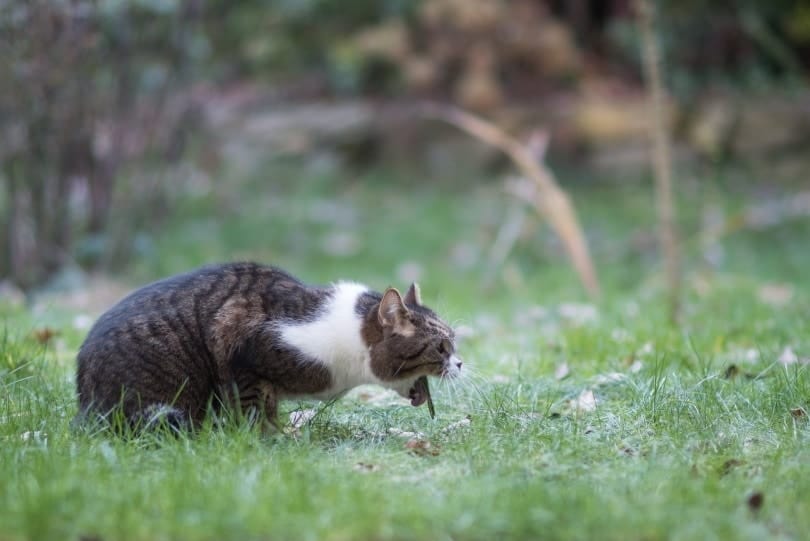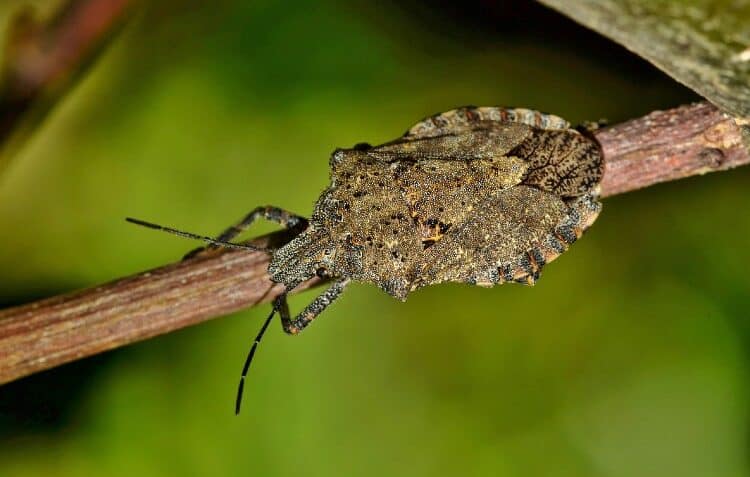Maybe you’ve noticed a funny smell lingering around your cat. Or else you fished a brown, shield-shaped bug out of his mouth. Perhaps you even saw your cat chase down a stink bug and swallow it. Your first reaction might be to panic. After all, they don’t smell like something you’d want your cat to eat.
The good news is that you don’t need to worry. Stink bugs might smell bad, but they aren’t poisonous to your cat, and she’ll be completely safe and fine. However, you might notice some minor discomfort or irritation left from stink bug secretions.
Symptoms of Stink Bug Irritation
If your cat eats a stink bug, the chances are that she’ll be perfectly happy and normal. However, some cats do experience irritations due to the smelly secretions stink bugs leave. This can cause stomach problems, and some cats might experience vomiting or diarrhea. You might also see excessive drooling or irritated skin. All these symptoms should stay mild and pass within a day or two.
It’s not good to let your cat chase down too many stink bugs. Although one or two will pass through your cat’s digestive tract without trouble, if your cat eats a lot at once, indigestible parts can build up in her stomach or digestive tract. Over time, this will turn into a bezoar, or hard mass, that might require surgery to remove. However, don’t worry—even if your cat is hunting down several a day, this is a rare outcome.

What Are Stink Bugs?
Stink bugs are big brown bugs that can reach up to a half-inch in length. They have shield-shaped carapaces that are grayish-brown with darker spots and long, striped antennae. They get their name because they can release a foul odor to protect them from predators. You’ll also smell their secretion when they are squashed.
These bugs are native to Asia, but they’ve become a problem in many US states, especially in the mid-Atlantic region. They invade homes, eat crops, and generally make trouble for humans.
Cats might enjoy chasing stink bugs because they are small, fast, and erratic, making them an interesting toy or prey for them. They are a perfect size for playing, and your cat might or might not try to eat them.
Preventing Stink Bug Infestations
If your area has lots of stink bugs, working to keep them out of your house can reduce the chances of your cat finding them. Patch up cracks or holes in walls or at the corners between walls and floors. Make sure that you keep attics, garages, and basements pest-proofed as well. If you live in an area with severe problems, investing in dehumidifiers to place in problem areas like attics can make the area less attractive. The same thing with dripping faucets or leaking pipes—any water buildup might attract insects. Finally, these bugs are attracted to light. Turning off exterior lights and closing blinds at night can help you avoid interest.
Last Thoughts
Stink bugs are a major pest, and it’s good to discourage your cats from eating them. After all, it’s no fun to see your cat have an upset stomach, even if you know it isn’t serious. But no pet parent can be everywhere and prevent every misadventure. If your cat has to eat something that isn’t good for her, stink bugs are a mostly harmless choice.
Featured Image Credit: Pixabay














